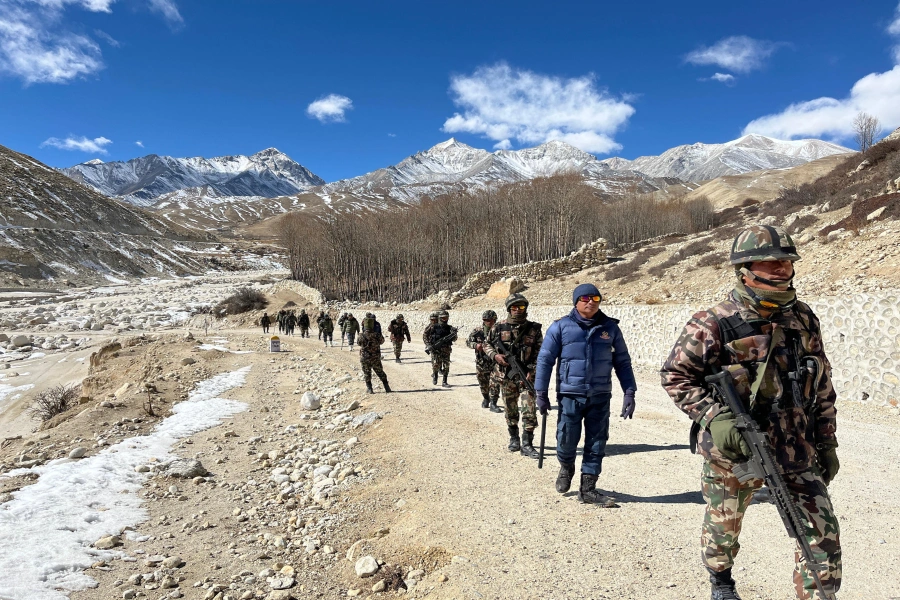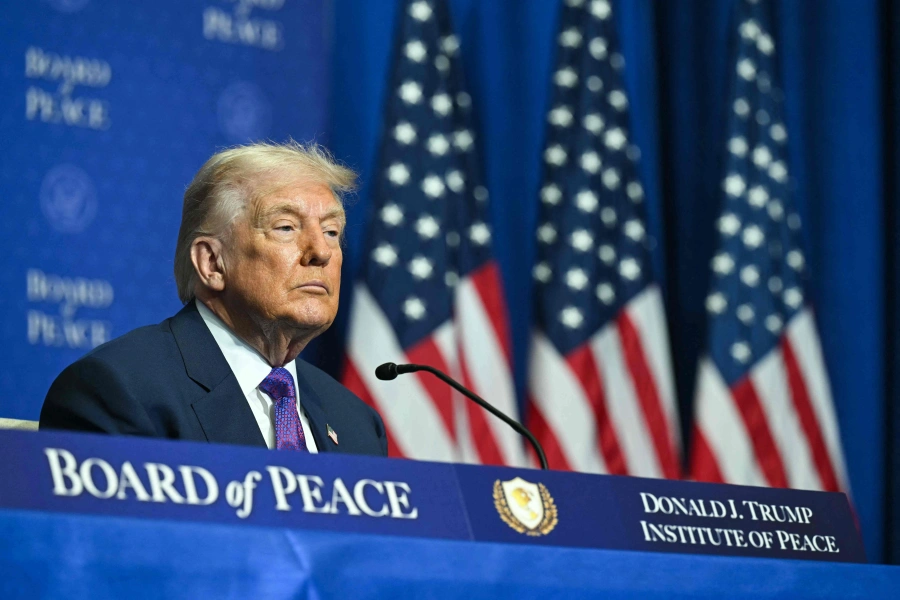The Red Sea holds immense significance for various nations and entities globally
The Red Sea crisis, involving Houthi attacks, has garnered global attention and has potential implications for the broader Middle East and North Africa (MENA) region conflict and the global economy. After Israel invaded Gaza in response to Hamas’ unprecedented surprise attack on Israel on October 7, 2023, the Houthi militia in Yemen, backed by Iran, expressed support for the Palestinian people targeting ships associated with Israel in the Red Sea, and vowed to continue doing so until the Israeli aggression on Gaza stops. In November 2023, the Houthis announced their intention to attack any ship linked to Israel, leading to the hijacking of the "Galaxy Leader," despite its indirect connection to Israel through its owner, Galaxy Maritime Limited, co-owned by Israeli businessman Abraham Unar. This marked the beginning of a series of attacks on merchant ships in the Red Sea.
A Serious Threat to Global Trade
The Houthi attacks, involving missiles, drones, and hijacking attempts, are attributed to support from Iran. This has transformed the Houthi militia into a well-equipped military force controlling the Northwestern third of Yemen. With direct access to the Red Sea, the Houthis pose a threat to maritime security and global trade. The Red Sea, a vital route for 12% of world trade, 10% of seaborne oil, and 8% of liquified natural gas (LNG), is crucial for the flow of goods between Asia and Europe, making it the second most critical maritime chokepoint globally.
The Significance of the Red Sea and Suez Canal
Red Panda in school curriculum

The Red Sea holds immense significance for various nations and entities globally. Russia, Qatar, China, Europe, and Japan have strategic interests in its stability, relying on it for oil and LNG exports and maintaining military bases. Countries like Saudi Arabia, the UAE, Bahrain, Kuwait, and Iraq use the Red Sea as a primary trade route for exporting crude oil to Europe. Egypt, as the controller of the Suez Canal, benefits from smooth trade flow. The United States views the continuous flow of maritime trade through the Red Sea as crucial for sustaining the globalized system it supports.
The Suez Canal, overseen by the Suez Canal Authority, serves as a vital route for ships traveling between Asia and Europe, despite the fees imposed. With no viable alternatives and considering the cost-effectiveness and time efficiency, it remains the preferred route to avoid the 14-day long route through Cape Town. The tolls contribute significantly to Egypt's income, constituting around 10% of the government's operating budget.
In the post-COVID-19 rebound of global trade, a record number of ships transited through the Suez Canal, highlighting its strategic importance. Nations like Jordan, Sudan, Eritrea, and Djibouti depend on the Red Sea for importing goods or supporting trade. However, the geopolitical turbulence in the region poses risks to the secure flow of trade through the Red Sea.
Historically, the Suez Canal faced blockades, with the 2021 incident involving the Ever Given global trade disruption. The Egyptian government sought compensation for the incident. The Bab el Mandeb Strait, prone to risks due to civil wars, hosts military bases of various nations. While Eritrea is governed by a harsh dictatorship, Djibouti remains stable and hosts military bases from China, the US, France, and others. Formerly threatened by Somali pirates, the Bab el Mandeb Strait now faces attacks from Houthi rebels in Yemen, impacting global trade and the world economy.
The Houthis working Against the US and Israel
The Houthi movement, originating from Yemen's Zidi Shia Muslim community, emerged during the Arab Spring revolts in 2014, capturing the Yemeni capital with support from Iran. This anti-American and anti-Israel group sought closer ties with Iran. In response, Saudi Arabia, supported by the United States and other Arab states, launched Operation Decisive Storm in 2015 to counter the Houthi rebellion. The Saudis aimed to prevent a Houthi victory that could threaten strategic straits, impacting Saudi Arabia's oil-dependent economy. The Saudi-led intervention, marked by 25,000 airstrikes and a maritime blockade, resulted in a humanitarian crisis in Yemen, declared the worst globally in 2023 by the UN, with over 380,000 deaths. Despite Saudi efforts, the Houthi rebels, backed by Iran, resisted and retaliated, causing casualties in Saudi and UAE population centers. The situation intensified under the US presidency of Donald Trump, who expanded support for the Saudi war effort and designated the Houthis as a terrorist organization, authorizing a significant arms deal with Saudi Arabia for use in Yemen.
During Trump's time, the US supported Saudi Arabia in Yemen. But in 2021, President Biden changed course, ending that support and taking the Houthis off the terrorist list. This change, along with Saudi Arabia's spending, led to a ceasefire in April 2022, allowing the Houthis to strengthen their control in Northwestern Yemen. Iran influenced Houthi attacks in the Red Sea, affecting insurance, global shipping, and Israel's port. In 2023, China got involved in restoring Saudi-Iran ties disrupted in 2016 after executing Nimr Baqir al-Nimr, a Shia cleric. The recent diplomatic developments left Saudi Arabia neutral, not aligning with the US and the UK while dealing with the Houthis.
Impact on Israel and the US
The Red Sea plays a minor role in Israel's maritime trade, with larger Mediterranean ports handling the majority. Although disruptions in the Red Sea increase Israeli import costs, it doesn't constitute a blockade. Jordan, Sudan, and Eritrea, relying on Red Sea ports, face challenges due to conflicts and instability. Houthis disrupting Red Sea shipping may have global economic repercussions, leading to pressure on Israel. Operation Prosperity Guardian, led by the US and coalition partners, aims to protect Red Sea shipping. Some Muslim-majority countries discreetly support it, not wanting public backlash. Recent Houthi attacks led to a US response, raising options for diplomatic solutions or increased military presence. The US deployed advanced missiles to intercept Houthi drones, raising concerns about escalating defense costs. Options include maintaining the current approach, a direct US air campaign, or diplomatic negotiations with Saudi Arabia, favoring a cautious approach due to complex geopolitical considerations and potential unintended consequences.
Fears of Wider-scale Tensions: Biden’s Cautious Move
Saudi Arabia has expressed concern about the potential designation of the Houthis as terrorists by the US. The US and British military have struck the Houthi stronghold in Yemen for the fifth time as of January 20, 2024. There are fears that such actions could disrupt peace negotiations, especially if economic sanctions follow. While there are historical parallels, a 2024 American attack on the Houthis, Yemen, is deemed unlikely due to the Biden Administration's reluctance. This reluctance is driven by a focus on reducing the active involvement of the US in the MENA region amid perceived threats from China and Russia.
The Biden Administration is concerned about potential involvement in a conflict in Yemen by attacking Houthi rebels. This is seen as a significant policy reversal, with the risk of entangling the US in another unpredictable and prolonged war in the region. The Red Sea situation is considered highly dangerous, with uncertain outcomes.
Conclusion
The Red Sea crisis involved Houthi attacks, with extensive media coverage showing a partisan split in framing the Houthi group. The Houthi attacks, widely believed to be backed by Iran, have transformed the militia into a formidable military force, exerting control over a significant portion of Northwestern Yemen. This has raised concerns about a substantial threat to maritime security and global trade. The strategic importance of the Red Sea extends beyond Yemen, involving key global players. The covert support for the anti-Israel movement by Russia, Qatar, China, and Iran has sparked concerns about stability in the region. Furthermore, the restrained stance of nations such as Saudi Arabia, the UAE, Bahrain, Kuwait, and Iraq, which heavily rely on the Red Sea for exporting crude oil to Europe, along with Egypt, benefiting significantly from the revenue generated by the Suez Canal directly linked to the Red Sea, has led to speculation about whether ensuring vessel security in the Red Sea is a primary responsibility of the US and its allies.







































